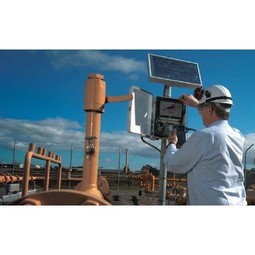Download PDF
From Spreadsheets to Multiphysics Applications, ABB Continues to Power Up the Transformer Industry
Technology Category
- Analytics & Modeling - Predictive Analytics
- Analytics & Modeling - Real Time Analytics
- Application Infrastructure & Middleware - Data Visualization
Applicable Industries
- Utilities
- Electrical Grids
Applicable Functions
- Product Research & Development
- Quality Assurance
Use Cases
- Predictive Maintenance
- Machine Condition Monitoring
- Process Control & Optimization
Services
- Software Design & Engineering Services
- System Integration
- Training
The Challenge
Companies developing new and improved power transformer equipment incur costs for prototyping and testing as they work to reduce transformer hum. At ABB, a team of engineers develops multiphysics simulations and custom-built applications to offer insight into their designs. Transformer noise often comes from several sources, such as vibrations in the transformer core or auxiliary fans and pumps used in the cooling system. Each of these sources needs to be addressed differently to reduce noise. ABB’s transformers comprise a metal core with coils of wire wound around different sections, an enclosure or tank to protect these components, and an insulating oil inside the tank. Passing alternating current through the windings of one coil creates a magnetic flux that induces current in an adjacent coil. The voltage adjustment is achieved through different numbers of coil turns. Because the core is made of steel, a magnetostrictive material, these magnetic fluxes — which alternate direction — cause mechanical strains. This generates vibrations from the quick growing and shrinking of the metal. These vibrations travel to the tank walls through the oil and the clamping points that hold the inner core in place, creating an audible hum known as core noise. In addition to the core noise, the alternating current in the coil produces Lorentz forces in the individual windings, causing vibrations known as load noise that add to the mechanical energy transferred to the tank.
About The Customer
ABB is one of the biggest manufacturers of transformers used around the world, headquartered in Zürich, Switzerland. The company is renowned for its expertise in power and automation technologies, providing solutions for a wide range of industries including utilities, industry, transport, and infrastructure. ABB’s transformers are integral to the electrical grid, which powers buildings like homes, businesses, and schools. The company’s transformers are used to increase and decrease voltage levels in power lines that carry alternating current, ensuring efficient and safe power transmission over long distances. ABB’s commitment to innovation and quality has led them to use advanced numerical analyses and computational applications to predict and minimize noise levels in their transformers, ensuring compliance with safety regulations and enhancing customer satisfaction.
The Solution
The ABB Corporate Research Center (ABB CRC) in Västerås, Sweden, developed a series of simulations and computational apps using COMSOL Multiphysics® simulation software and its Application Builder. These tools calculate magnetic flux generated in the transformer core and windings, Lorentz forces in the windings, mechanical displacements caused by magnetostrictive strains, and the resulting pressure levels of acoustic waves propagating through the tank. The team created an electromagnetic model to predict the magnetic fields induced by the alternating current and the magnetostrictive strains in the steel. They then calculated the resonance for different frequencies using a modal analysis, predicting the sound waves moving through the oil and calculating the resulting vibrations of the tank. This allowed them to adjust the geometry and setup of the core, windings, and tank to minimize noise. The CRC team also developed custom applications using the Application Builder, which can be easily customized to suit the needs of different departments within ABB. These applications simplify testing and verification for designers and R&D engineers, allowing them to access finite element analysis through a user interface without needing to learn finite element theory. The applications include both the physics model developed in the COMSOL® software and custom methods written in Java® code, programmed within the Application Builder.
Operational Impact
Quantitative Benefit
Related Case Studies.

Case Study
IoT Solutions for Smart City | Internet of Things Case Study
There were several challenges faced: It is challenging to build an appliance that can withstand a wide range of voltage fluctuations from as low at 90v to as high as 320v. Since the device would be installed in remote locations, its resilience was of paramount importance. The device would have to deal with poor network coverage and have the ability to store and re-transmit data if networks were not available, which is often the case in rural India. The device could store up to 30 days of data.

Case Study
Automation of the Oguz-Gabala-Baku water pipeline, Azerbaijan
The Oguz-Gabala-Baku water pipeline project dates back to plans from the 1970’s. Baku’s growth was historically driven by the booming oil industry and required the import of drinking water from outside of the city. Before the construction of the pipeline, some 60 percent of the city’s households received water for only a few hours daily. After completion of the project, 75 percent of the two million Baku residents are now served around the clock with potable water, based on World Health Organization (WHO) standards. The 262-kilometer pipeline requires no pumping station, but uses the altitude differences between the Caucasian mountains and the capital to supply 432,000 m³/d to the Ceyranbatan water reservoir. To the people of Baku, the pipeline is “the most important project not only in 2010, but of the last 20 years.”

Case Study
GPRS Mobile Network for Smart Metering
Around the world, the electricity supply industry is turning to ‘smart’ meters to lower costs, reduce emissions and improve the management of customer supplies. Smart meters collect detailed consumption information and using this feedback consumers can better understand their energy usage which in turn enables them to modify their consumption to save money and help to cut carbon emissions. A smart meter can be defined in many ways, but generally includes an element of two-way communication between the household meter and the utility provider to efficiently collect detailed energy usage data. Some implementations include consumer feedback beyond the energy bill to include online web data, SMS text messages or an information display in consumers’ premises. Providing a cost-effective, reliable communications mechanism is one of the most challenging aspects of a smart meter implementation. In New Zealand, the utilities have embraced smart metering and designed cost effective ways for it to be implemented. The New Zealand government has encouraged such a move to smart metering by ensuring the energy legislation is consistent with the delivery of benefits to the consumer while allowing innovation in this area. On the ground, AMS is a leader in the deployment of smart metering and associated services. Several of New Zealand’s energy retailers were looking for smart metering services for their residential and small business customers which will eventually account for over 500,000 meters when the multi-year national deployment program is concluded. To respond to these requirements, AMS needed to put together a solution that included data communications between each meter and the central data collection point and the solution proposed by Vodafone satisfied that requirement.

Case Study
NB-IoT connected smart meters to improve gas metering in Shenzhen
Shenzhen Gas has a large fleet of existing gas meters, which are installed in a variety of hard to reach locations, such as indoors and underground, meaning that existing communications networks have struggled to maintain connectivity with all meters. The meter success rate is low, data transmissions are so far unstable and power consumption is too high. Against this background, Shenzhen Gas, China Telecom, Huawei, and Goldcard have jointly trialed NB-IoT gas meters to try and solve some of the challenges that the industry faces with today’s smart gas meters.

Case Study
OneWireless Enabled Performance Guarantee Test
Tata Power's power generation equipment OEMs (M/s BHEL) is required to provide all of the instrumentation and measurement devices for conducting performance guarantee and performance evaluation tests. M/s BHEL faced a number of specific challenges in conducting PG tests: employing high-accuracy digital communications for instrumentation, shortening setup and dismantling time, reducing hardware required, making portable instrument setup, avoiding temporary cabling work and the material waste costs

Case Study
British Gas Modernizes its Operations with Innovative Smart Metering Deployment
The UK government has mandated that smart meters are rolled out as standard across Great Britain by end of 2020, and this roll-out is estimated to create £14 billion in net benefits to the UK in consumer energy savings and lower energy generation demand, according to the Oxford Economics report, “The Value of Smart Metering to Great Britain.” While smart-metering systems have been deployed in many countries, the roll-out in Great Britain is unique because it is led by energy retailers, who have responsibility for the Electricity and Gas meters. The decision to have a retailer-led roll out was made by DECC (Department of Energy and Climate Change) to improve customer experience and drive consumer benefits. It has also led to some unique system-level requirements to support the unique local regulatory model.





